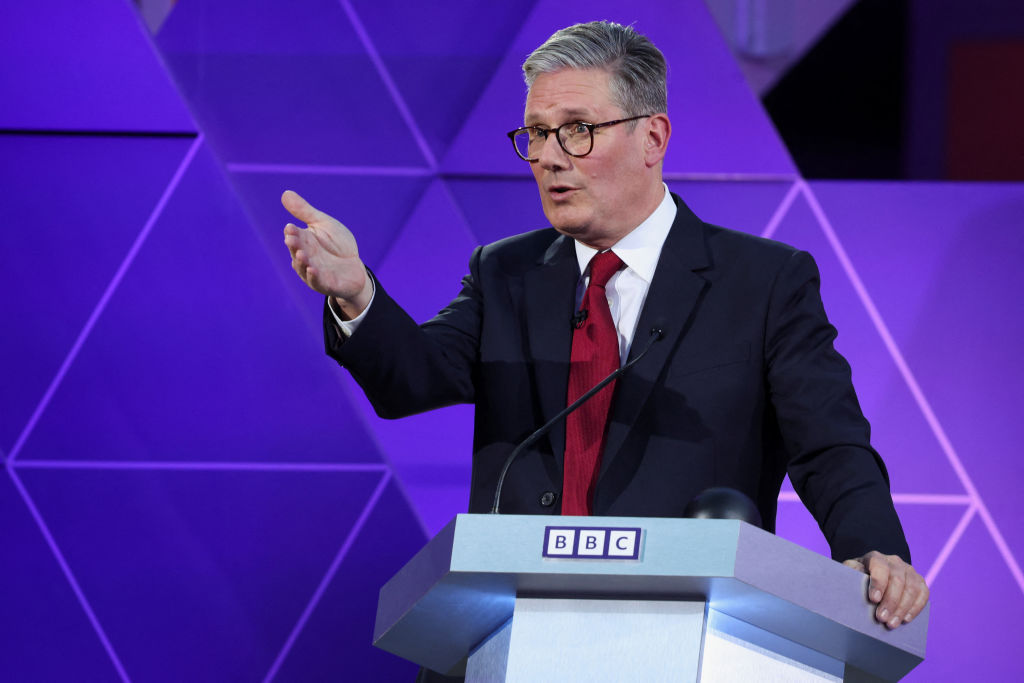Labour leader Sir Keir Starmer has landed himself in hot water with members of the British-Bangladeshi population this week. The trigger was an interview with the Sun in which he singled out Bangladesh as a country to which migrants needed to be sent back from the UK, prompting the resignation yesterday of Stepney Green Labour Councillor Sabina Akhtar and strong condemnation from Left-wing Labour candidate Apsana Begum, who called it “dog whistle racism”.
But why is Starmer specifically referring to Bangladesh in this context? Last month, an agreement signed by the UK and Bangladesh to tackle illegal migration went largely unnoticed. It aimed to more quickly return failed Bangladeshi asylum seekers, foreign-national offenders and individuals who have overstayed their visas. Bangladesh’s long-serving Prime Minister Sheikh Hasina has stressed her zero-tolerance approach to illegal migration.
However, raising Bangladesh in isolation when it comes to illegal migrants and visa overstayers opens a can of worms for Starmer, with relations already strained among many traditionally Labour-supporting, mainly Muslim Bangladeshi-heritage voters who are disillusioned with his position on the Israel-Gaza war. When it comes to irregular migration in the shape of small-boaters crossing the Channel in the early part of 2024, Bangladesh does not even feature in the top 20 countries of origin, while the likes of Vietnam, Turkey, India, Sri Lanka, and Kuwait do. Historically, Bangladesh is not a common country of origin associated with small-boat Channel crossings either.
In terms of those applied through the in-country asylum system in 2023, Bangladeshis do rank fifth in terms of nationality (4,300) but trail both Indians and Pakistanis (5,300 each). During her time as Home Secretary, Suella Braverman also raised the point that the largest group of people who overstay their visa are Indian migrants, sparking a furious reaction from Indian government ministers and officials. In early 2023 Indians represented the third-largest cohort of small-boat Channel migrants, with 1,192 arriving in total last year.
None of this is to say that there are no migration or asylum issues involving Bangladeshi nationals. In the year ending December 2023, 33,000 Bangladeshi nationals arrived in the UK, with 11,000 entering on visas only to lodge claims for permanent residence in their first 12 months. People are right to question the credibility of asylum claims. After all, Bangladesh is not only a strategically important Commonwealth partner which takes an especially tough stance on religious extremism, but also a rapidly-developing economy with a strong emphasis on female social empowerment.
If Starmer wanted to use an example of a relatively safe Commonwealth country whose nationals are notably represented in recent flows of small-boat illegal migration into the UK and asylum claims, as well as being associated with high rates of overstaying their visa, the obvious country to single out — based on the numbers — would be India, not Bangladesh.
There is the possibility that the PM-in-waiting is wary of alienating elements of the British-Indian population ahead of the UK general election, as well as the “Modi 3.0” government in New Delhi. After all, he would have seen the level of grief Braverman received, both at home and abroad, over her intervention on Indian migrants. He also has to think of the optics of singling out India given his rival Rishi Sunak’s heritage. This may seem trivial, but anything can be turned against you in an election campaign.
However, the ongoing national debate on immigration and asylum requires courage. That means raising inconvenient truths which may not go down well with strategically significant electoral groups at home and diplomatic allies abroad. Starmer should take note. If he wants to solve the small-boats crisis, he will have to accept that he can’t please everyone.











Join the discussion
Join like minded readers that support our journalism by becoming a paid subscriber
To join the discussion in the comments, become a paid subscriber.
Join like minded readers that support our journalism, read unlimited articles and enjoy other subscriber-only benefits.
Subscribe